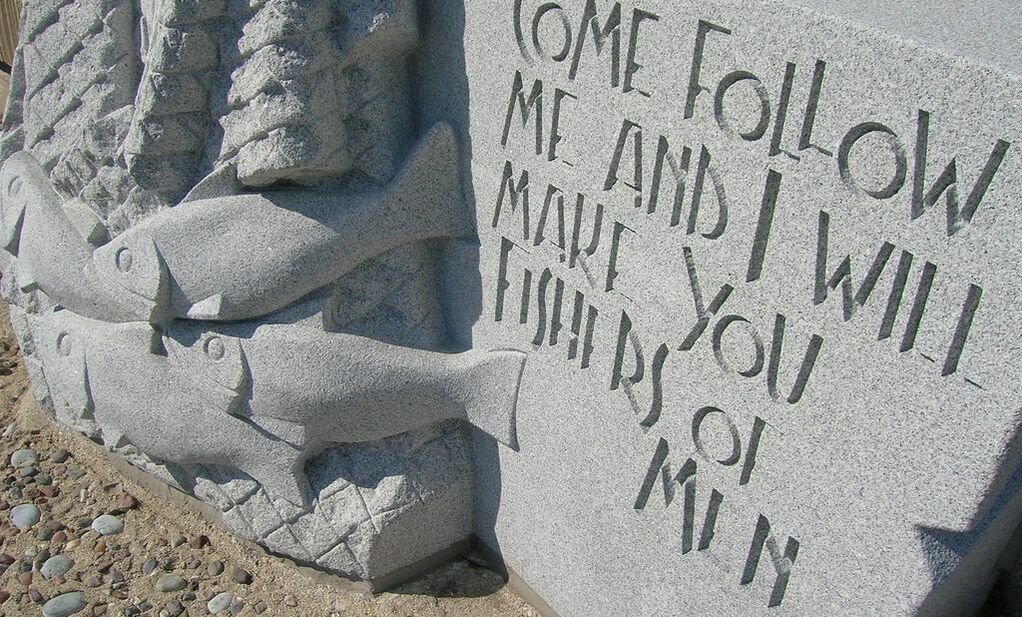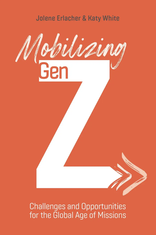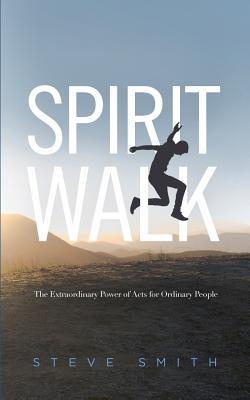|
Ramadan is a month in the Islamic lunar calendar but it isn’t just any month. Ramadan is the month in which - according to Islamic theology - the first revelation of the Koran was revealed to the Prophet Mohammed and it is during this month that all Muslims across the globe are required to abstain from all earthly pleasures - food, water, cigarettes, sexual relations - from sun up to sun down. Fasting like this during Ramadan is one of the five pillars of Islam and it is one of the most important religious and cultural holidays for Muslims. This year Ramadan runs from May 6th through June 4th. Below is a short video explaining Ramadan. It is a few years old so the dates are wrong and it was created by a secular news source. Ramadan Opportunities Ramadan is a tremendous opportunity to learn, pray and build relationships with Muslims in your community. God is on the move in the Muslim world. More Muslims have come to faith in Christ in the last fifteen years than in the previous 1400 years combined. He is doing a new work and with today’s article I want to offer a number of ideas of how you can be a part of that work during the upcoming month of Ramadan. Ramadan Prayer Guide Since 1993, the 30 Days Muslim World Prayer Guide has been helping to both educate and lead Christians into a season of prayer for the Muslim world. This guide is a great resource to help you spend a few minutes each day praying for God to move powerfully. Each page has a few paragraphs about the day’s topic and three ideas to help you focus your prayer. Order one for your family or consider ordering more and enlisting others to pray as well. [Learn More] Prayercast also has a 30 day prayer email series which you can learn about at this link. Wish Your Muslim Friends a Happy Ramadan An easy way to wish your Muslim friends a happy Ramadan is to say “Happy Ramadan.” It's really that simple but you could also say “Ramadan Mubarak” which is a simple way to say happy Ramadan in Arabic and is a greeting used across the Muslim world. Read a Book or Two Ramadan could be a great month to choose a book about Islam or the Muslim world to read. An even better idea would be to gather a group of friends to read a book together. Here are a few suggestions:
Show a Prayercast at Your Church Many in our churches are struggling with how to respond to the world of Islam. There are many voices vying to shape the narrative around how we should think about Muslims. Prayercast is a great resource to help shape that narrative in ways more reflective of the heart of Jesus. You could show the Prayercast Islam video or Prayercast videos from any of the Muslim majority countries in our world at your church on a Sunday morning. Each video is just 3-4 minutes in length. [Learn More] Attend an Iftar Meal at a Local Mosque If you live in a city with a local Islamic Center you may be able to attend a community iftar meal. Many Mosques in North America use Ramadan as an opportunity to invite people in for this breaking of fast meal with the Muslim community. They usually set aside one evening of Ramadan for this. Check the website of your local Islamic center to see if they have a community iftar meal. [Mosque Visit Purpose and Etiquette] Make a Friend Online Across the Muslim world people are getting online in search of friendship and language partners. Embassy exists to connect Muslims and Christians so that bold and honest conversations about Christ can happen. They would like to help you get started today. You too can be a part of Greater Things. [Learn More] Host a Movie at Your Church There are a lot of great movies that have been made to help you and your church grow in your love and concern for the Muslim world. Consider having a movie night to watch one of these movies together with others from your church. Pray for a Muslim People Group Pick a particular Muslim people group and spend the month of Ramadan learning about them and praying for them. Here is a list of unreached Muslim people groups from Joshua Project - there are over 3,000 groups making up 23% of the world’ population. [See the List] Host a Ramadan Prayer Night Another great opportunity is to host a Ramadan prayer night. We’d love to help you make this happen if you’d like to do this. It could be as simple as gathering friends in your home to pray or you could organize a community wide prayer event at your church. Get More Training Maybe you are wanting to dive in deeper, to get more training so you can be better prepared. Crescent Project has an intensive training event every summer called Sahara Challenge. [Learn More] Whatever you do, do something. Do it in love and do it in prayer. And we'd love to hear about it so share your Ramadan plans and actions in the comments below.
0 Comments
When I first connected with Musa* online, I was the first follower of Jesus he had ever met. I initiated the first conversation about Jesus that he had ever had. I helped him read the first chapter of the Bible that he had ever read. And I am probably the first true follower of Jesus who has ever committed to praying for his salvation. Musa lives at the widest end of the gap. By now it should be obvious that all Christians are born again into the Gap between God’s world-wide purpose and the fulfillment of it. But there’s more than one kind of response to that Gap. Some are asleep, some are on retreat, and some are determined to stand in the Gap particularly at its widest end where billions await the opportunity to hear of Christ for the first time. David Bryant’s book Into the Gap introduces two ideas: the world Christian and the gap. With today’s article I want to explore the latter. Every person in the world stands in the same sized gap between their brokenness and their salvation. Jesus Christ is the only way to be saved and that remains the same whether we we are the son of a preacher in Colorado Springs or of an imam in Islamabad. The distance between death and life, between darkness and light is the cross of Christ. But there is another gap that Bryant explores; the gap in our ability to hear the good news of the cross of Christ. In my small Midwestern city, there is never a time when a person is more than a quarter mile from a true follower of Jesus. There is never a place that is more than a mile or two from the nearest church. Twenty four hours a day Christian radio programming runs on multiple stations. A drive down any main boulevard passes multiple billboards advertising churches or Christian schools. The gospel is accessible. The gap is quite narrow. But travel into the 10/40 window and the picture changes. The 10/40 window is the area of the earth between latitudes ten and forty degrees north of the equator. It is home to the majority of the world’s Muslims, Hindus, Buddhists, Animists and Unreligious (China) peoples. It is home to the majority of the world's nearly 7,000 unreached people groups - nearly 3 billion people - who have never heard the gospel. A person living in the 10/40 window would be hard pressed to find a church within 100 miles of their home. They would most likely live their entire life without ever encountering a follower of Jesus. They may never hear a Christian radio broadcast or pick up a Bible. The distance between a person who does not know Jesus and the opportunity to hear about Jesus is enormous. This is the widest end of the gap. At Everywhere to Everywhere, our heart is to accelerate movement toward the widest end of the gap. We work to equip and encourage everyone everywhere to proclaim the gospel and make disciples among the unreached locally, nationally and globally. In the past, the only answer to the wide end of the gap was to send missionaries into it. That is still an answer and the body of Christ throughout the world must send more. 3 billion lost in darkness demands it. But the context of that gap has changed. Technology has opened up new opportunities to connect with people there. Globalization and world crisis have brought millions out of the 10/40 window and into gospel saturated countries. We live in a new day of world missions and because of that we must be equipped to respond to new opportunities. I have seen, at different times, the smoke of a thousand villages - villages whose people are without Christ, without God, and without hope in the world. The smoke of a thousand villages is drifting in through your window. You only need follow it and you will find yourself in conversation with someone like my friend Musa, someone who has never known a follower of Jesus and never heard the gospel. Someone whom you can befriend. Someone with whom you can begin to share the good news of Jesus and to pray for. Your journey into the widest end of the gap has never been closer. Will you go? Helpful Resources
Help E2E and share this article with your friends. *For security reasons, names have been changed.
In the great commission, Jesus commands his disciples to “teach them (new disciples) to obey everything I have commanded.” Here is a question for you: What is the first command that you would teach a new believer in Jesus to obey? Teach them to obey? If you’re like me - someone who grew up in an American evangelical church - then maybe that phrase sounds weird, legalistic or even a bit foolish. Shouldn’t the question rather state, “What is the first thing you would teach a new believer to know?” It’s an interesting distinction but to be true to scripture, Jesus doesn’t command us to teach them to “know” what he has commanded. Knowledge seems secondary - important, but secondary. If we are to become a people who make disciples who make disciples then this is a distinction we must learn to make. We must move toward teaching and modeling obedience to Jesus. And if a push toward obedience sounds weird, legalistic or foolish then either Jesus got it wrong or we have gotten it wrong. What do you think? “If you love me, obey my commands.” --Jesus *I've added this great video from Curtus Sergeant. What is it going to take to reach all of Jefferson High School?* This was the question being asked by students working with Collision, a local ministry focused on catalyzing movements to Christ within every school in their city. One student leader shared a plan to identify every relational group within the school: football players, skaters, the theater crowd, cross country runners, Latinos, Somalis, Nepalis, etc. They were wrestling with the idea of entry strategy. In the four fields to kingdom growth framework, understanding how to identify and enter fields of lostness is a key concept of the first field. As these students made their lists, they were beginning to do just that. Remember, their vision was to reach ALL of Jefferson High School, one of the biggest schools in the state. Theirs was a God sized vision! They started by identifying each relational group in their school. They then moved on to the second half of the entry strategy concept: How do we enter those fields? How do we ensure that every person, in every group has the opportunity to hear and respond to the gospel? Exploring Entry Strategy As we work to raise up disciples who will make disciples, we must train entry strategy. If our disciples are going to obey Jesus and make disciples then we must teach them tools and strategies that they can employ and teach others to employ. Entry strategies should lead to opportunities to share the gospel. If our only entry strategy is to ask disciples of Jesus to invite the lost to come to events so someone else can share the gospel with them, we are inadvertently communicating to them that making disciples is someone else’s job. But movements aren’t built on the expertise and charisma of a few but on the priesthood of all believers equipped and released to make disciples who make disciples[1]. At the start we must teach entry strategies that challenge the faith of new believers and release responsibility to them. Anything else will lead to passivity and stagnation.** Entry Strategy Examples There are hundreds and thousands of entry strategies. These strategies allow us to get in front of people who are far from God. Almost all of them are valid and almost all of them produce fruit and lead to salvations. Sat 7 broadcasts the good news of Jesus all across the Muslim world. Billy Graham shared the good news of Jesus to stadiums filled with people. Tracts have been left on windshields in the Walmart parking lot. And we all know someone who was invited to church where they heard the gospel and came to faith. God has and will continue to use these types of entry strategies. But if we want our disciples to become disciples who make disciples, then they must be empowered and released to enter new fields, to proclaim the gospel and to disciple new believers. We must raise the expectations on what it means to be a disciple and equip everyone to be active participants in God’s work rather than just mere consumers. Anything less leads to passive faith, stunted growth and soon becomes a barrier to kingdom expansion. The students at Jefferson high school could have looked outside for a special speaker that Collision could bring in. They could have planned a large rally at a nearby church and invited every student to come. Their job then would have been to hand out flyers and invite students. And some would have come. Some would have heard the gospel and some would most certainly have come to faith. But then these young disciples would not have had the opportunity to be Christ’s ambassadors. They wouldn’t have needed to know how to share their faith or how to lead someone to Christ. They wouldn’t have needed to enter into the mess of students’ lives. They would not have needed to know how to disciple new believers. They wouldn’t have needed to obey Jesus and make disciples. And most at Jefferson high school would not have heard the gospel because most would not have come to a large rally. The vision was not to reach some of Jefferson High School. The vision is to reach ALL of Jefferson High School. And so these students are wrestling with discovering entry strategies that will allow them to reach ALL of Jefferson High School. They are beginning in prayer and listening to the Holy Spirit for guidance. They are themselves becoming disciples worth multiplying. They are starting with their relational networks, praying for those they know who don’t yet know Christ. They are learning about the person of peace and praying that the Lord will lead them to such people in each of the groups that they identified. They are coaching new believers to gather their friends together to discover the truths in God’s word. They are finding creative ways to serve and meet other students. They are asking Wig-Take questions. They are setting goals and prayerfully holding one another accountable to reach those goals. Each week new students are coming to faith. Each week new groups are starting on campus. God is on the move because a group of students believe that God wants to use them on their campus. In Matthew 10, Jesus sends out the twelve two by two with a number of instructions. Verses 9-10 in the Message read this way: Don’t think you have to put on a fund-raising campaign before you start. You don’t need a lot of equipment. You are the equipment, and all you need to keep that going is three meals a day. Travel light. The students at Jefferson High School have come to believe that they are the equipment that God wants to use and their example should encourage you. God has placed you in a job, in a neighborhood, in a group of friends and in a family because He wants to use you there. Your relational networks is your first entry strategy. You also live in towns, cities and regions filled with people who are far from God, people you do not know. How will they hear? Begin to prayerfully discover the entry strategies that will allow you to share the good news of Jesus in these places. *Pseudonym
[1] https://www.everywhere2everywhere.org/articles/reproducibility **Nathan Shank, starting on page 29 in Four Fields of Kingdom Growth, offers a helpful list of questions for evaluating tools and methodologies. |
The E2E Community
Categories
All
Good Books
Archives
April 2024
|
Proudly powered by Weebly









